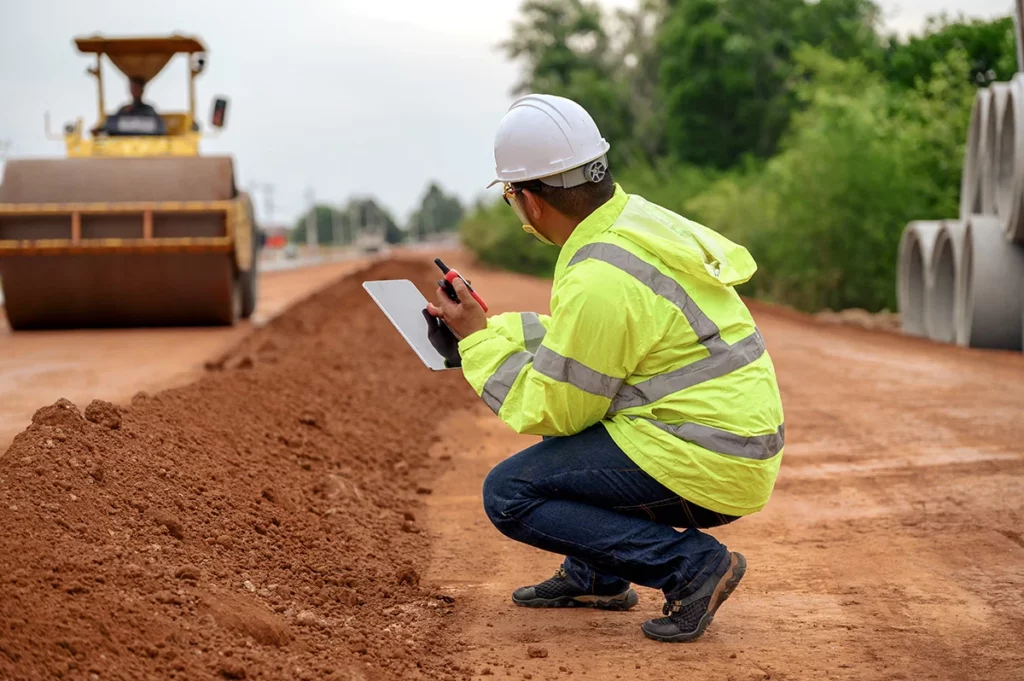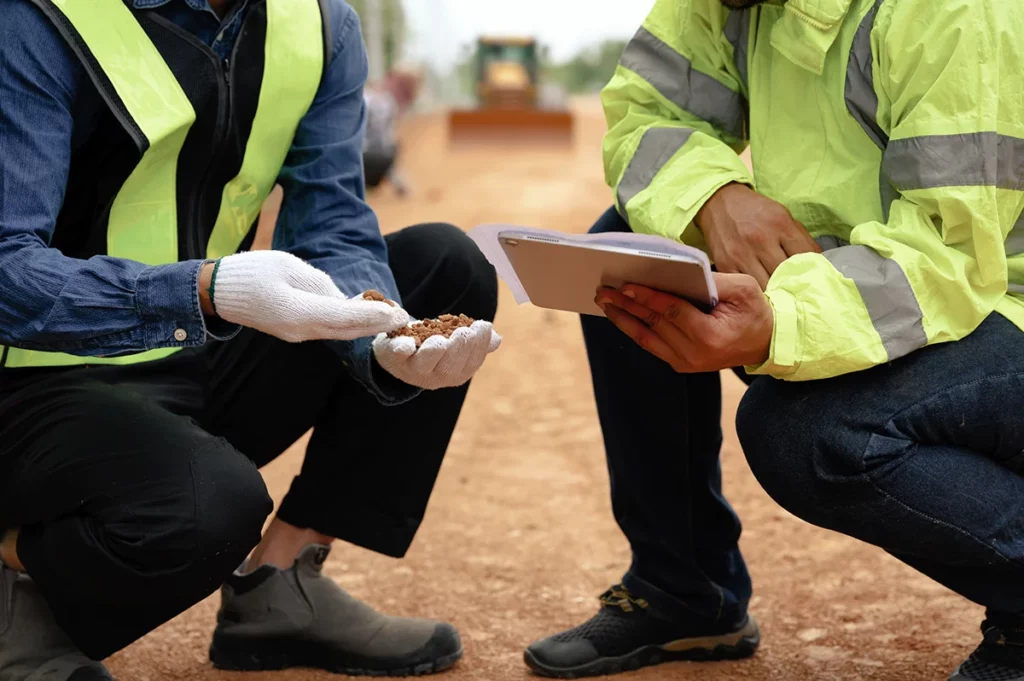Why is Soil Analysis Important in Commercial Construction?
July 24, 2024 Commercial ConstructionLearn why soil analysis is important in commercial construction and how the results can inform critical decisions throughout the entire project.

Why Soil Analysis is Important in Commercial Construction
Soil analysis is one of the most critical steps to a successful commercial construction project. Soil testing provides the data and insight necessary to ensure the long-term safety, stability, and longevity of any building. Without this crucial step, unforeseen issues can arise that can lead to costly delays and even structural failures.
What Is Soil Analysis? (Soil Testing)
Soil analysis, also known as soil testing, is a crucial part of the pre-construction planning process that determines the properties and characteristics of the land. By analyzing soil samples, the construction team gains essential insights that inform decisions on everything from the foundation design to the overall building process.
Soil testing is often included in a commercial construction project’s feasibility study. However, the results and data typically merit a dedicated report and are documented separately due to the detailed nature of the findings.
The Process of Soil Testing Before Commercial Construction
Soil analysis typically involves several stages:
- Planning: Experts assess the site to determine how many soil samples will be needed and how deep in the ground they need to be collected from.
- Sample Collection: Technicians collect soil from various depths and locations of the site.
- Lab Analysis: The samples are then lab-tested to assess characteristics like soil composition, moisture content, density, and bearing capacity.
- Reporting: Engineers analyze the data and recommend any necessary soil improvements to ensure the safety and stability of the building.
The Importance of Soil Analysis Before a Commercial Construction Project

While dirt may seem insignificant, a professional soil analysis before a commercial construction project offers a wealth of benefits and lays the groundwork for a safe and secure structure:
The Foundation of Structural Stability
The most crucial reason for soil testing before a commercial construction project is to ensure the building’s foundation is safe and stable. Soil analysis helps identify the soil’s ability to support the structure’s weight (bearing capacity), which helps determine the foundation design, and how it is constructed. Based on the soil’s properties and characteristics, engineers will design the foundation type (slab, piers, etc.) and depth.
This is crucial for the long-term stability of the building and prevents uneven settling that can cause cracks and other structural issues, or the sinking or caving of the ground (subsidence) after the project’s completion.
Informed Design Decisions
The data obtained from soil testing informs critical decisions throughout the design process. The results help predict the soil’s settlement behavior, or how it will naturally shift and change over time. Engineers will factor in potential risks like seismic activity or expansive soils that may require special design considerations.
Soil analysis also provides valuable insights for designing an effective drainage system for a commercial building. The soil’s ability to allow water to flow through (permeability) is a key factor in determining the type of drainage system needed to prevent water accumulation around the building’s foundation.
Identify Soil Contamination Problems
Soil can contain harmful contaminants like heavy metals, pesticides, or industrial chemicals. These substances can pose significant health risks and may also affect the integrity of certain construction materials. If contaminants are identified early on, this leaves room for appropriate remediation strategies to be developed. Properly addressing contaminated soil helps prevent pollutants from leaching into groundwater or affecting surrounding ecosystems.
Additionally, detecting soil contamination early on and properly remediating it may prevent costly delays and related legal issues down the line, ensuring that the project stays on schedule and within budget.
Ensure Compliance with Regulations
Many building codes and regulations dictate specific requirements for foundation types, soil stability, and load-bearing capacities. As a common prerequisite for construction permits, proper soil analysis helps ensure that building plans are approved, and safety standards are met.
Following all necessary regulations helps mitigate legal risks, work stoppages, or fines associated with non-compliance.
Cost Efficiency and Risk Mitigation
Accurate and thorough budgeting is critical for the success of any commercial construction project, and soil analysis plays a key role. Understanding soil properties identifies potential problems early on so costly delays or changes can be avoided.
For Commercial Construction Expertise – Choose FDC
Proper soil analysis is an indispensable process that helps mitigate risks and supports the long-term success of commercial construction projects. Facility Development Company (FDC) is a trusted leader in the commercial construction industry. We offer a comprehensive range of construction services to ensure your project stands on a solid foundation from start to finish.
To learn more about how FDC can support your construction needs, contact us online today or give us a call at (707) 523-1722 to connect with one of our qualified experts.
